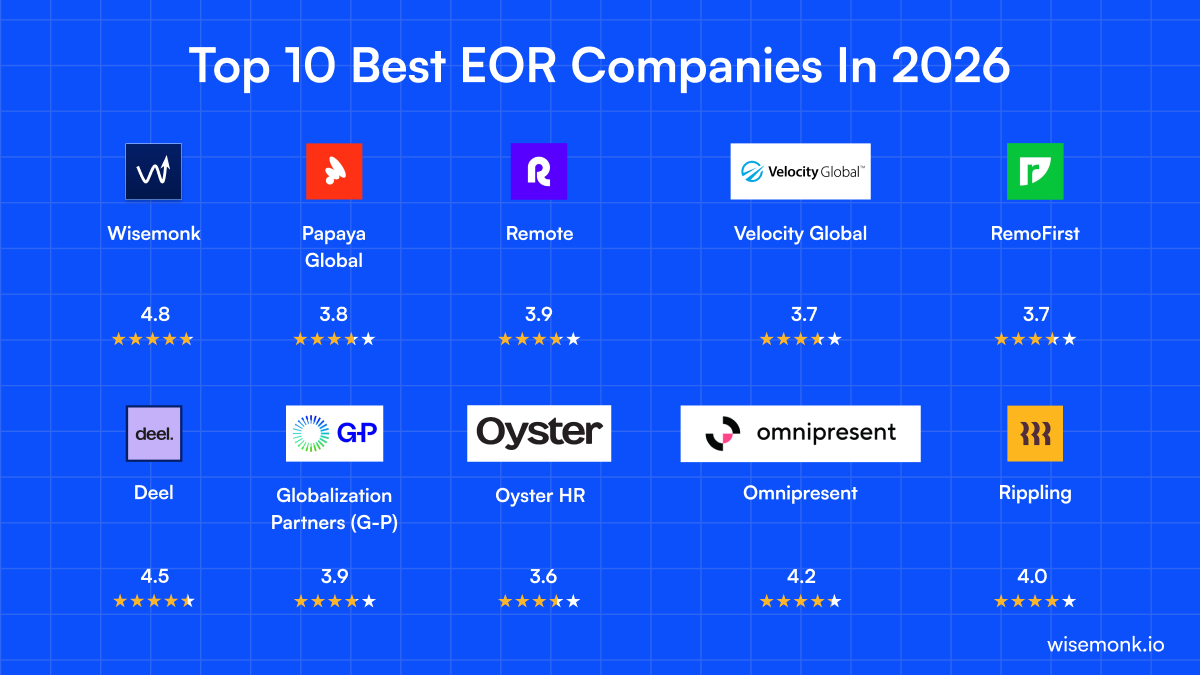Thinking about expanding your business with an Employer of Record EOR in Portugal? Portugal’s robust EU market access and world-class talent are incredibly attractive, but local employment laws and payroll rules require close attention. Based on our experience guiding global companies, partnering with a skilled employer of record in Portugal is the fastest way to hire, without the hassle of launching a legal entity or mastering local HR compliance. This approach lets you focus on business growth while expert teams handle contracts, payroll, and ever-changing regulations.
What is the Portuguese employment law framework?[toc=Employment Law Framework]
Understanding Portuguese employment laws is crucial before hiring. Here’s a clear overview to help you quickly grasp the essentials of Portuguese employment law before you start hiring.
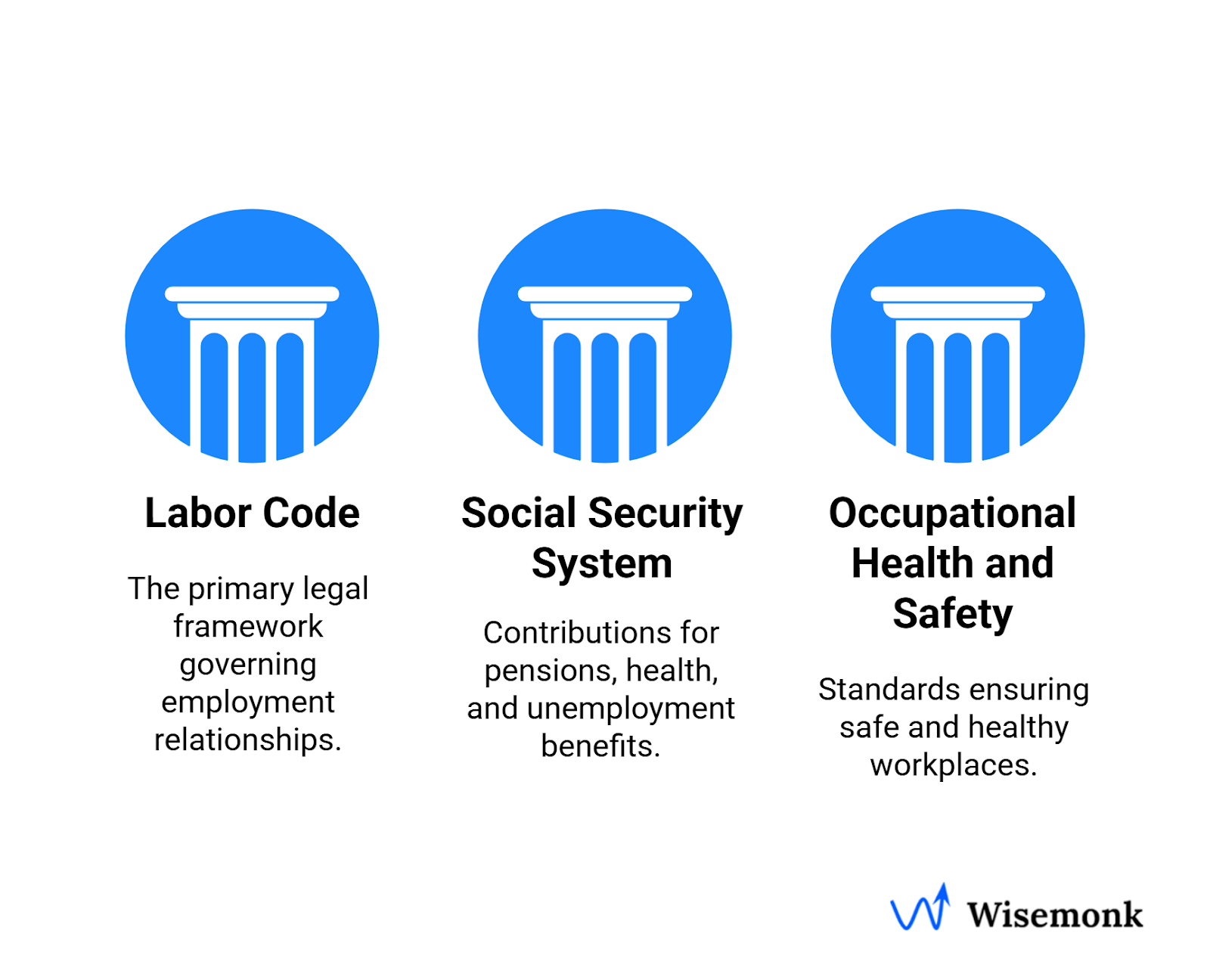
- The Labor Code (Código do Trabalho) is the main legal framework that governs employment relationships, setting rules on contracts, working hours, and termination.
- Portugal also requires employers and employees to contribute to the Social Security System, which covers pensions, health, and unemployment benefits.
- Employers must comply with Occupational Health and Safety standards to ensure safe workplaces. Recent labor reforms have modernized various regulations, making compliance easier but still detailed. Staying updated on these rules helps prevent legal issues and build strong employee relationships.
What are the key benefits of using an Employer of Record (EOR) in Portugal?[toc=Key Benefits of EOR]
Here’s a quick rundown of why partnering with an EOR in Portugal can be a game-changer for your global expansion strategy.
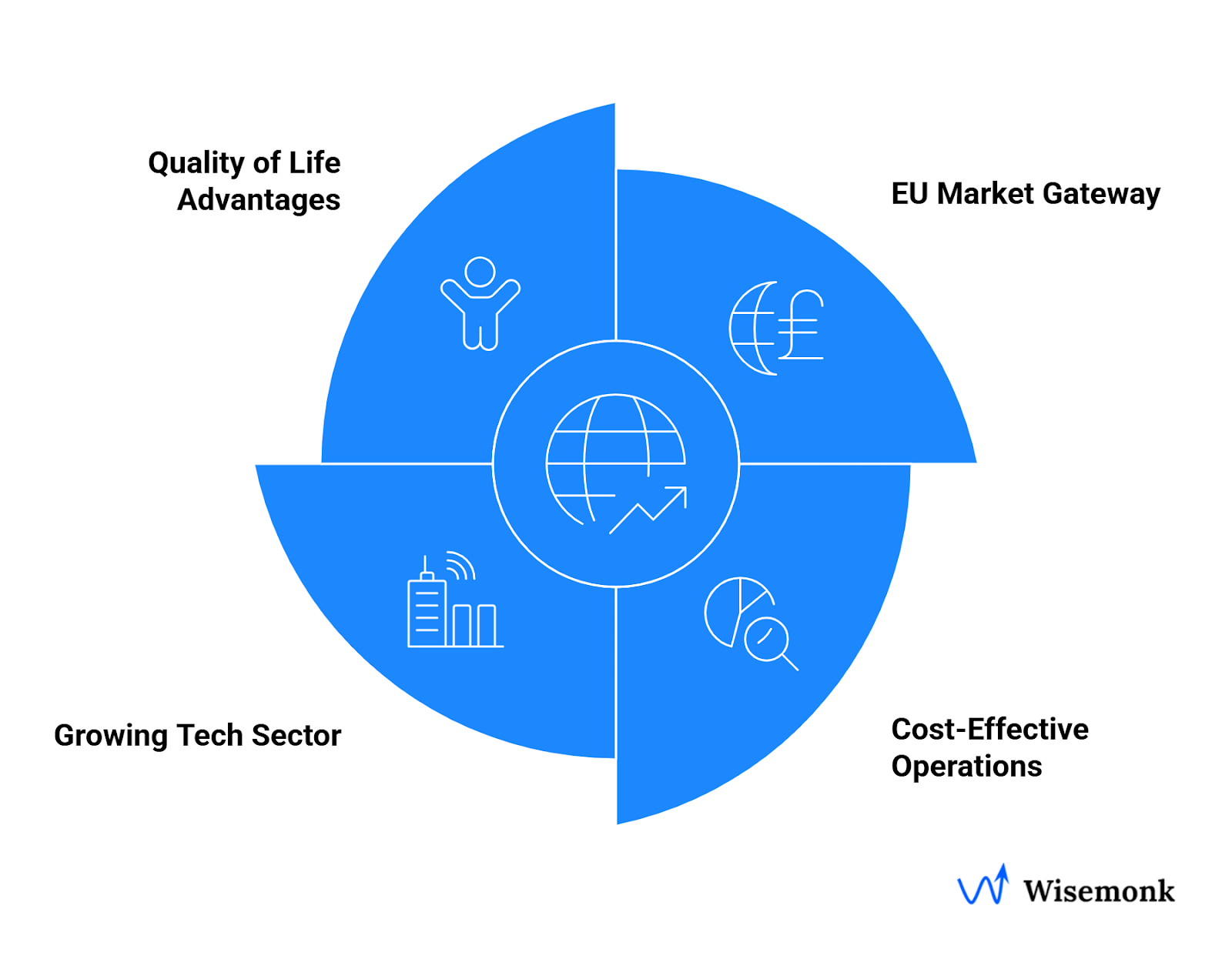
- EU Market Gateway: Portugal’s membership in the EU offers seamless access to the entire European market. An EOR lets you hire Portuguese employees quickly without needing a legal entity, giving you immediate presence and compliance in this lucrative region.
- Cost-Effective Operations: Compared to many Western European countries, Portugal offers competitive labor costs and social security contributions. Using an EOR reduces setup and ongoing administrative expenses, helping you optimize your budget while ensuring full legal compliance.
- Growing Tech Sector: Portugal is rapidly evolving as a tech hub, with Lisbon and Porto attracting startups and international tech firms. Accessing this skilled talent pool through an EOR means quicker hiring of specialized professionals familiar with both local and global markets.
- Quality of Life Advantages: Portugal enjoys a high quality of life with excellent healthcare, safety, and affordable living costs, making it easier to attract and retain top talent. This stability benefits your global workforce and improves employee engagement.
How do payroll and tax compliance work in Portugal?[toc=Payroll & Tax Compliance]
Here’s a quick guide to staying on track with payroll, taxes, and the famous NHR tax perks in Portugal.
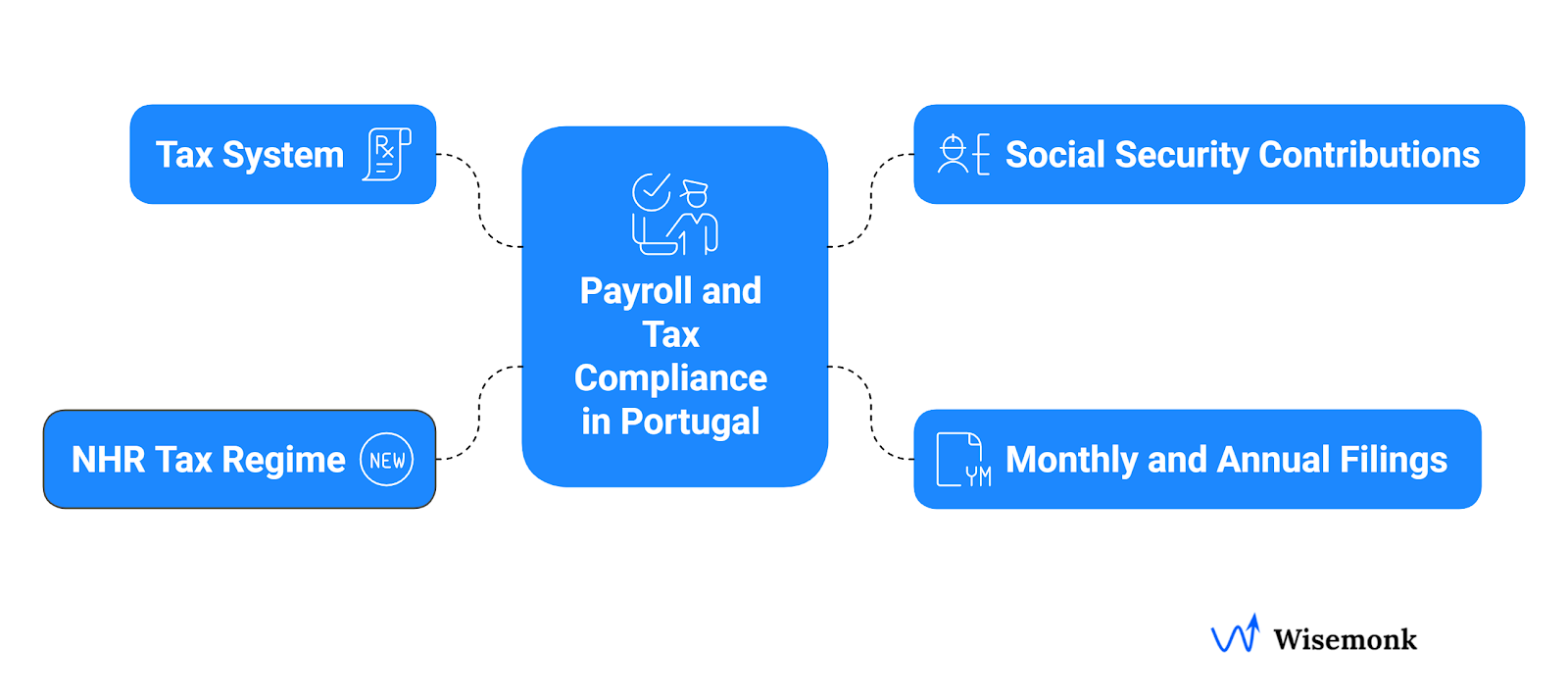
Portuguese tax system: Employees in Portugal pay personal income tax (IRS) on a sliding scale from 13% up to 48% in 2025, depending on gross salary. Non-residents pay a flat 25% on Portuguese-sourced income. Social security contributions and payroll deductions are handled by the employer each month, based on the employee’s gross salary.
Social security contributions: Employers contribute 23.75% and employees add 11% of gross wages, covering pensions, healthcare, and other statutory benefits. Payments are due monthly, typically between the 10th and 20th for the preceding month.
Monthly and annual filings: Employers must withhold income tax and social security contributions every month, submit regular declarations, and file an annual payroll summary. Personal income tax returns (for employees) are filed online between April 1 and June 30 each year, covering income from the previous calendar year.
NHR tax regime benefits: The Non-Habitual Resident (NHR) status lets eligible new residents benefit from a 20% flat tax on certain Portuguese-source income and potential tax exemptions on most foreign income for up to 10 years, if a double-taxation agreement applies. This regime helps attract foreign professionals and retirees with lower effective tax rates and additional perks such as no wealth tax and reduced pension tax (10% flat rate on foreign pensions).
In our experience helping international firms manage payroll globally, understanding these tax rules and deadlines and taking advantage of the NHR regime ensures smooth compliance and avoids costly penalties down the line.
What benefits and entitlements do employees in Portugal receive?[toc=Employee Benefits]
Here’s what you need to know about supporting your team in Portugal:
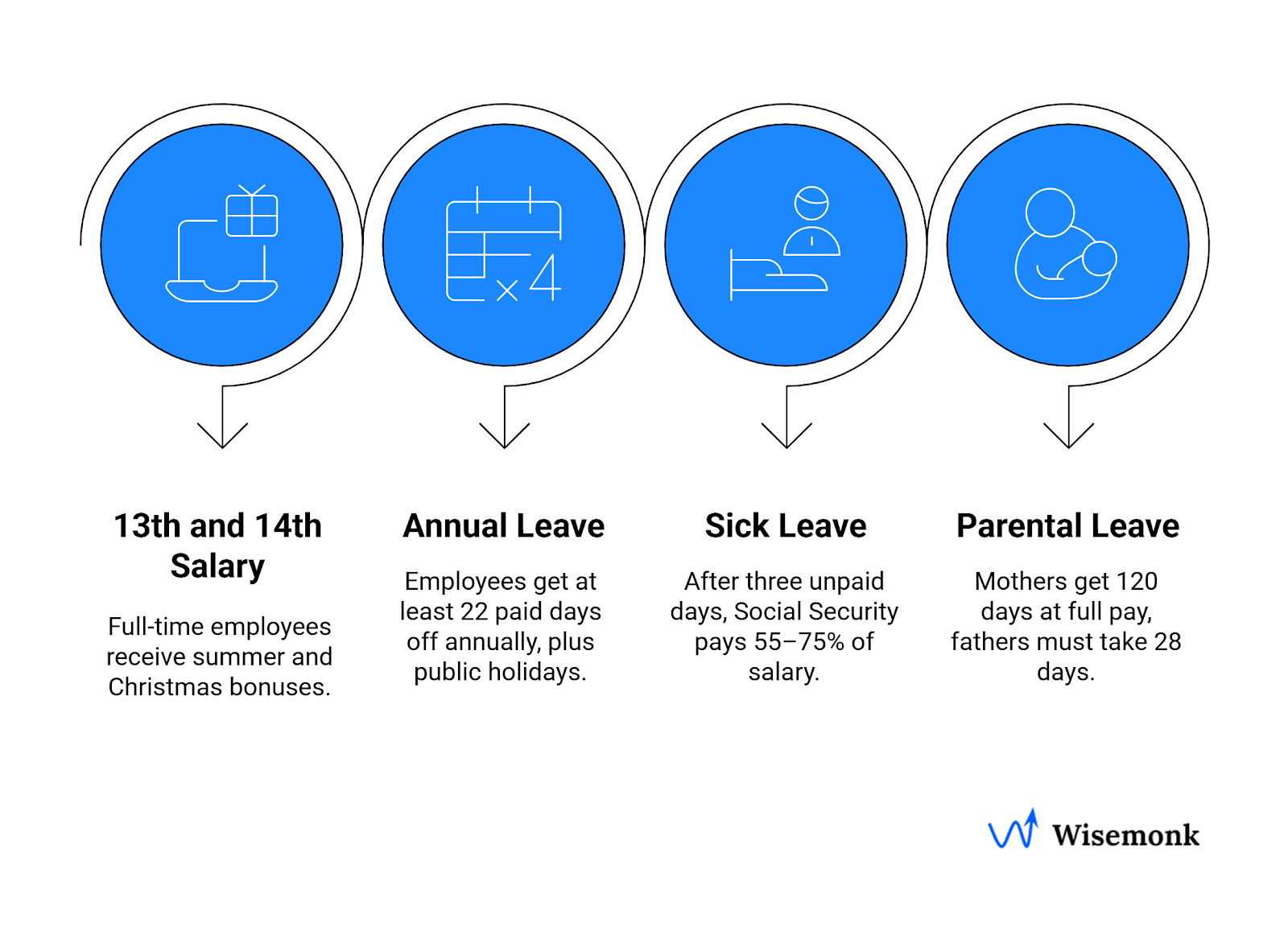
- 13th and 14th Month Salaries: Every full-time employee gets both a summer bonus in June and a Christmas bonus in December; these are standard and built into every employment contract, so employers should always plan for these extra payments.
- Annual Leave: Employees are entitled to at least 22 paid working days off per year, plus public holidays. New hires earn 2 days per month, up to 20 days in their first year, and unused leave can’t be cashed out.
- Sick Leave: After the first three unpaid days, Social Security pays 55–75% of the salary, based on how long someone is out. A doctor’s note is needed for any absence over three days.
- Maternity and Paternity Leave: Mothers get 120 days at full pay (or 150 at 80%), with at least 42 days after birth. Fathers must now take at least 28 consecutive days. These benefits are covered by Social Security.
In our work with global teams, we’ve found Portugal’s clear rules on extra pay and family leave make it an easy place to support and retain talent.
How does the hiring and onboarding process work in Portugal?[toc=Hiring & Onboarding Process]
Here’s what you need to start hiring smoothly in Portugal with full compliance to local employment laws and payroll processing:
- Required Documentation (NIF): Every employee must have a Portuguese Tax Identification Number (NIF). They provide a passport or EU ID and proof of address, which are essential for employment contracts, legal employer records, and payroll taxes. Employers also collect Social Security numbers to set up Social Security contributions and statutory benefits.
- Background Checks: Employers verify ID, address, educational qualifications, and request a police certificate to meet local labor laws and employment regulations. Candidate consent is required to comply with GDPR. References and past work verification help avoid employee misclassification and ensure a strong employment relationship.
- Contract Essentials: Written employment agreements are standard, especially for fixed-term, part-time, or foreign workers. Contracts must include start date, role, gross salary, working hours, notice periods, and employee benefits as per Portuguese employment laws. Probation periods usually last 90 days, up to 180 days for senior positions, clearly defining the employment relationship.
- Onboarding Timeline: Once all documentation is verified, onboarding includes training, orientation, and scheduled check-ins at 30, 60, and 90 days. This ensures new employees integrate well, understand their contracts and labor code rights, and meet performance expectations. The full process typically takes weeks to months, depending on paperwork speed and managing employees effectively.
From our experience managing local entity setups and global employment solutions, clear steps and adherence to local labor laws make for a compliant and efficient hiring and onboarding journey.
What should you know about managing a Portuguese workforce?[toc=Workforce Management]
Managing employees in Portugal means knowing local labor laws and Portuguese employment regulations to keep your team engaged and productive.
- Portuguese Work Culture: It centers on respect, open communication, and work-life balance as outlined in the labor code. Employees value clear goals, teamwork, and professional punctuality, but also appreciate a friendly workplace to support managing employees effectively.
- Communication Styles: Direct yet polite communication paired with clear employment contracts and regular feedback works best. Constructive and supportive dialogue builds trust, helping with labor law compliance and smooth performance management.
- Performance Management: Regular reviews linked to clear KPIs, included in employment agreements, motivate workers and identify growth areas. Recognizing achievements and setting realistic expectations in line with Portuguese labor regulations supports employee loyalty and legal compliance.
- Professional Development: Portuguese employees value training and career growth. Providing workshops, mentorship, and courses aligns with statutory benefits and enhances retention, which is crucial in Portugal’s competitive labor market.
Understanding these factors helps ensure compliance with local employment laws and builds a motivated, well-managed workforce.
How does employee termination work in Portugal?[toc=Termination Procedures]
Here’s what’s essential for a fair, legal exit under Portuguese employment laws:
- Dismissal Categories: Employment can end for just cause (serious misconduct) or redundancy (role no longer needed). Every dismissal requires written notice and a formal process, giving employees a chance to respond.
- Severance Calculations: Most terminations require severance, typically 12 days’ pay per year of service, based on gross salary. No severance for just cause dismissals; specific rules apply for fixed-term contracts.
- Notice Requirements: Written notice is mandatory, with periods from 15 to 60 days depending on tenure and contract type. Always check collective bargaining agreements for extra rules.
- Legal Risk Mitigation: Follow all local laws, maintain clear records, and document each step to avoid claims of unfair dismissal or employee misclassification. We’ve seen that consulting a legal expert keeps international and complex cases compliant.
Getting severance, notice, and paperwork right is key to responsible termination and risk-free HR in Portugal.
What should you know about cost analysis and financial planning with an Employer of Record in Portugal?[toc=Cost Analysis]
Understanding costs upfront helps you budget effectively and maximize ROI when using an EOR Portugal service.
- EOR Service Pricing Models: Most providers charge a percentage of the employee’s gross salary or a fixed monthly fee covering payroll processing, compliance management, and HR administration. This usually includes managing social security contributions, tax filings, and statutory benefits.
- Social Security Cost Implications: Employers in Portugal contribute around 23.75% of gross salary to the social security system, which covers pensions, healthcare, and paid leaves. These costs are mandatory and must be factored into the overall employee compensation budget alongside income tax and payroll taxes.
- Benefits Budgeting: You should plan for mandatory employee benefits such as the 13th and 14th month salaries, paid annual leave, sick leave provisions, and parental leave. Including statutory benefits and any private health insurance or meal allowances is essential for accurate financial planning.
- ROI Calculations: Using an EOR can reduce setup and administrative costs compared to establishing a local entity. Savings come from avoiding legal entity formation, simplifying payroll taxes and compliance, and reducing legal risks related to employment laws. Evaluating these savings against the service fees helps determine the true return on investment for your Portuguese workforce expansion.
In our experience, thorough cost planning, including all taxes, social security, and benefits, helps companies avoid surprises and confidently grow globally with EOR solutions
What common challenges and solutions come with using an Employer of Record in Portugal?[toc=Challenges]
Here are key challenges and how a trusted EOR can help:
- Complex Benefits: Calculating 13th/14th salaries, social security, and paid leave can be tricky. EORs handle accurate payroll taxes and statutory benefits, avoiding legal issues.
- Cultural Integration: Different workplace cultures and communication styles require effort. Local onboarding and open feedback ease integration and improve employee relations.
- Compliance: Portugal’s detailed labor laws and tax rules make compliance tough. EORs ensure correct payroll processing, avoid employee misclassification, and keep you aligned with local employment laws and regulations.
- Talent Competition: Skilled workers are in demand, especially in tech hubs like Lisbon. Competitive pay, good benefits, and quality workplaces matter. EORs assist with salary benchmarking, benefits like private health insurance, and strong employment contracts to attract top talent.
Staying proactive with updates, clear communication, and expert EOR support keeps your Portugal hiring and payroll smooth and compliant.
Conclusion[toc=Conclusion]
Partner with an experienced EOR service provider to hire employees fast without setting up a local entity. Stay compliant with Portuguese employment laws, social security contributions, and payroll taxes. Use clear employment contracts covering gross salary, statutory benefits, and working hours. Benchmark compensation, especially for tech roles, and support employees with paid annual leave, private health insurance, and development opportunities. Regularly update your team on local labor law changes. In our experience, strong compliance, clear communication, and partnering with experts are the keys to effortless, risk-free hiring in Portugal.
Ready to expand your global workforce quickly and compliantly? Partner with Wisemonk’s Employer of Record services to effortlessly manage hiring, payroll, and compliance, so you can focus on growing your business with confidence.
Frequently asked questions
What are the 13th and 14th-month salaries?
In Portugal, employees receive mandatory 13th and 14th month salaries as statutory benefits, paid as a summer holiday and Christmas bonus, included in all employment contracts and payroll processing.
How does the NHR tax regime work?
The NHR regime offers eligible employees a flat 20% personal income tax on Portuguese income and exemptions on most foreign income for 10 years, aligning with local payroll taxes and social security contributions.
What are the work visa requirements?
Non-EU workers need a valid job offer, a compliant employment contract, NIF, health insurance, a background check, and an employer-managed work permit under Portuguese labor laws and immigration rules.
How long does it take to hire through EOR in Portugal?
EOR hiring in Portugal typically takes a few weeks, handling employment contracts, payroll taxes, social security, and ensuring compliance without needing a local legal entity.
What are the advantages of Portugal for tech companies?
Portugal offers cost-effective labor, skilled multilingual employees, strong labor law compliance, growing tech hubs, and easy EU market access, making it ideal for hiring Portuguese employees through EOR.
When to use an Employer of Record?
An Employer of Record is most useful for international hiring and expansion. Businesses often use an EOR when expanding into new countries, or during cross-border mergers and acquisitions, to stay compliant without setting up a local entity.
What is the difference between a contractor and an EOR?
An Employer of Record (EOR) is a third-party that legally employs workers for a company, managing payroll, taxes, and compliance. A contractor is a self-employed individual who provides services under a contract and manages their own taxes and benefits.
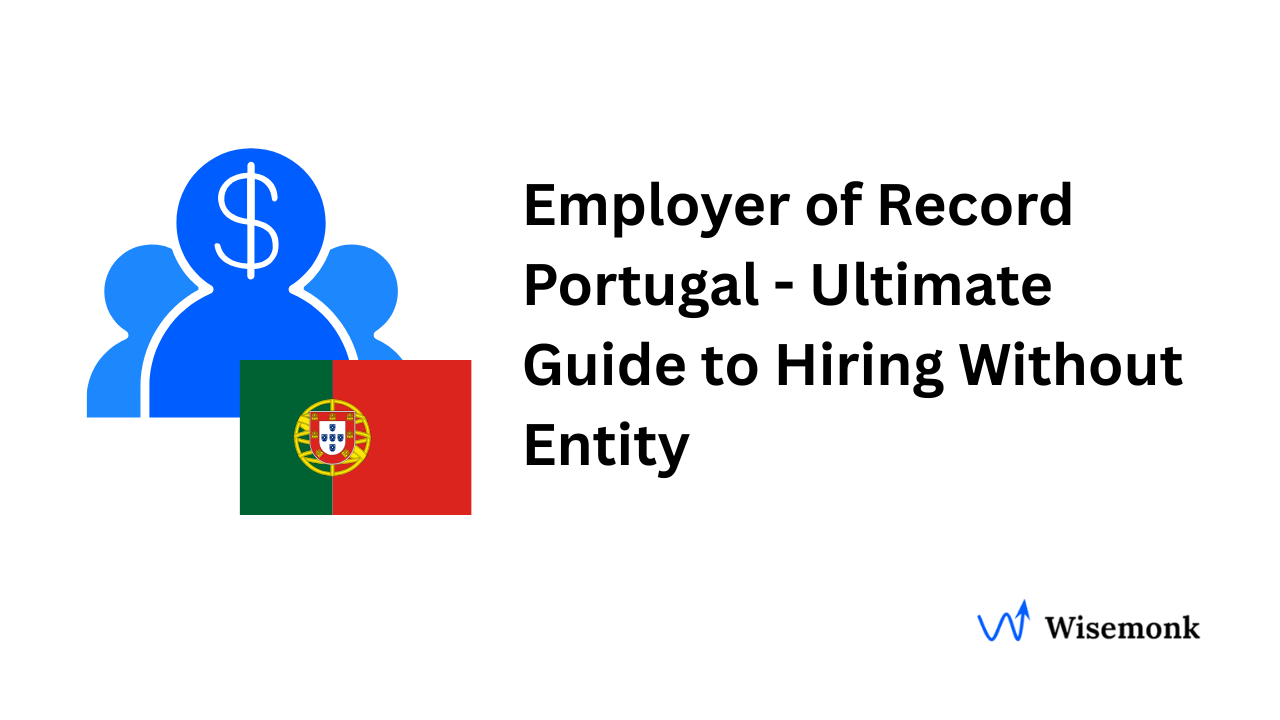
.png)
%20(1).webp)
